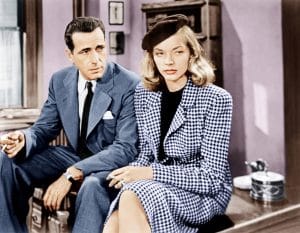
doyouremember.com
‘Rocky’ Icon Sylvester Stallone Using a Cane At Kennedy Center Honors
Sylvester Stallone, the legendary Hollywood actor known for Rocky and Rambo, made a striking appearance at the 48th Kennedy Center Honors on December 7, 2025. At 79, he was celebrated as one of the year’s honorees. Fans and photographers immediately noticed a new detail: Sylvester Stallone using a cane for the first time in public. The black cane, held firmly in his right hand, marked a subtle but significant shift for the action star famed for his on-screen toughness.
Stallone appeared alongside his wife, Jennifer Flavin, radiating elegance and poise. His black tuxedo, Kennedy Center medallion, and neatly styled silver hair completed the look. Yet the cane quickly became the evening’s talking point. For fans, this moment highlighted both his resilience and the realities of aging, adding poignancy to Sylvester Stallone using a cane at such a high-profile event.
The First Public Appearance with a Cane
Iconic actor, screenwriter, director, Academy Award-winning writer of ?????, and 2025 Kennedy Center Honoree Sylvester Stallone arrives on the Kennedy Center red carpet. pic.twitter.com/oSy7HvEIJe
— The Kennedy Center (@kencen) December 7, 2025
This event marked the first public sighting of Sylvester Stallone using a cane. He carried it with confidence and composure. Full-length images show him navigating the red carpet gracefully. Even with the new accessory, he exuded charm and charisma.
According to Hello!, Sylvester Stallone using a cane does not diminish his legendary status. Instead, it underscores his enduring dedication to his craft. At 79, he continues to work in Hollywood and inspire audiences. The cane symbolized strength, adaptation, and grace in the public eye.
A Life of Triumphs and Heartache
ROCKY, Carl Weathers, Sylvester Stallone, 1976 / Everett Collection
Stallone’s life includes both incredible achievements and personal loss. He spoke about his late son Sage and acknowledged the challenges of balancing work and family. Despite tragedy, including Sage’s death in 2012, Sylvester has honored his family’s memory and nurtured strong bonds with his other children: Seargeoh, Sophia, Sistine, and Scarlet.
ROCKY IV, (aka ROCKY IV: ROCKY VS. DRAGO, aka ROCKY IV: ROCKY VS. DRAGO: THE ULTIMATE DIRECTOR’S CUT), front, from left: Burt Young, Tony Burton, Sylvester Stallone, Marty Denkin, Dolph Lundgren, in 2021 director’s cut, 1985. © MGM /Courtesy Everett Collection
Sylvester Stallone using a cane at the Kennedy Center also reminds fans of his life experiences. From Hollywood triumphs to navigating grief, he shows resilience and dedication. His appearance highlighted not only his accomplishments but also the human side of a man who has inspired generations.
Next up: Lauren Bacall’s Christmas Tree: Hollywood Glamour at the Holidays
The post ‘Rocky’ Icon Sylvester Stallone Using a Cane At Kennedy Center Honors appeared first on DoYouRemember? - The Home of Nostalgia. Author, Ruth A












